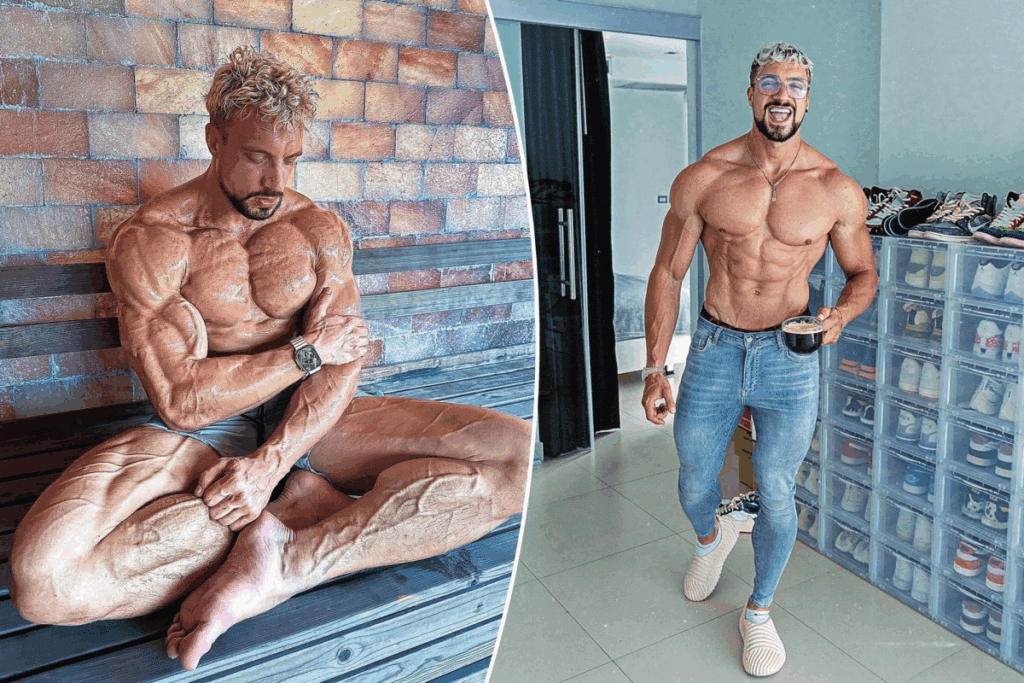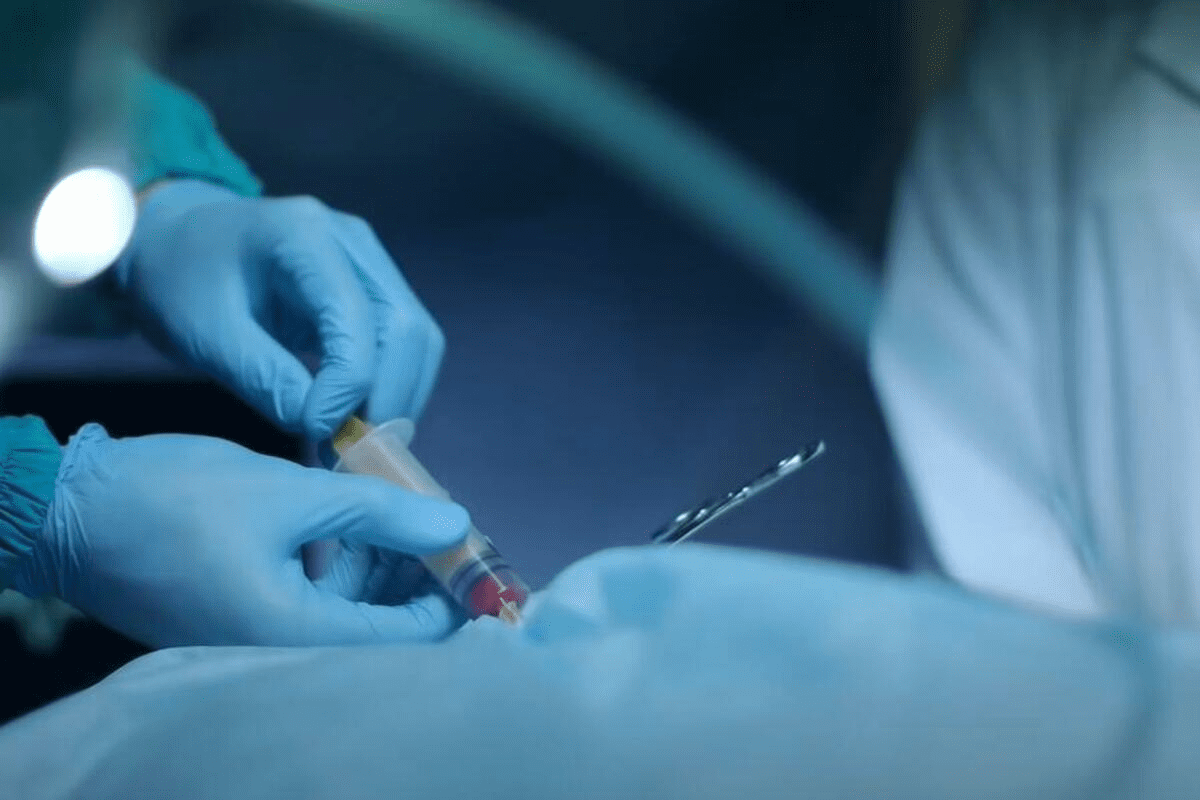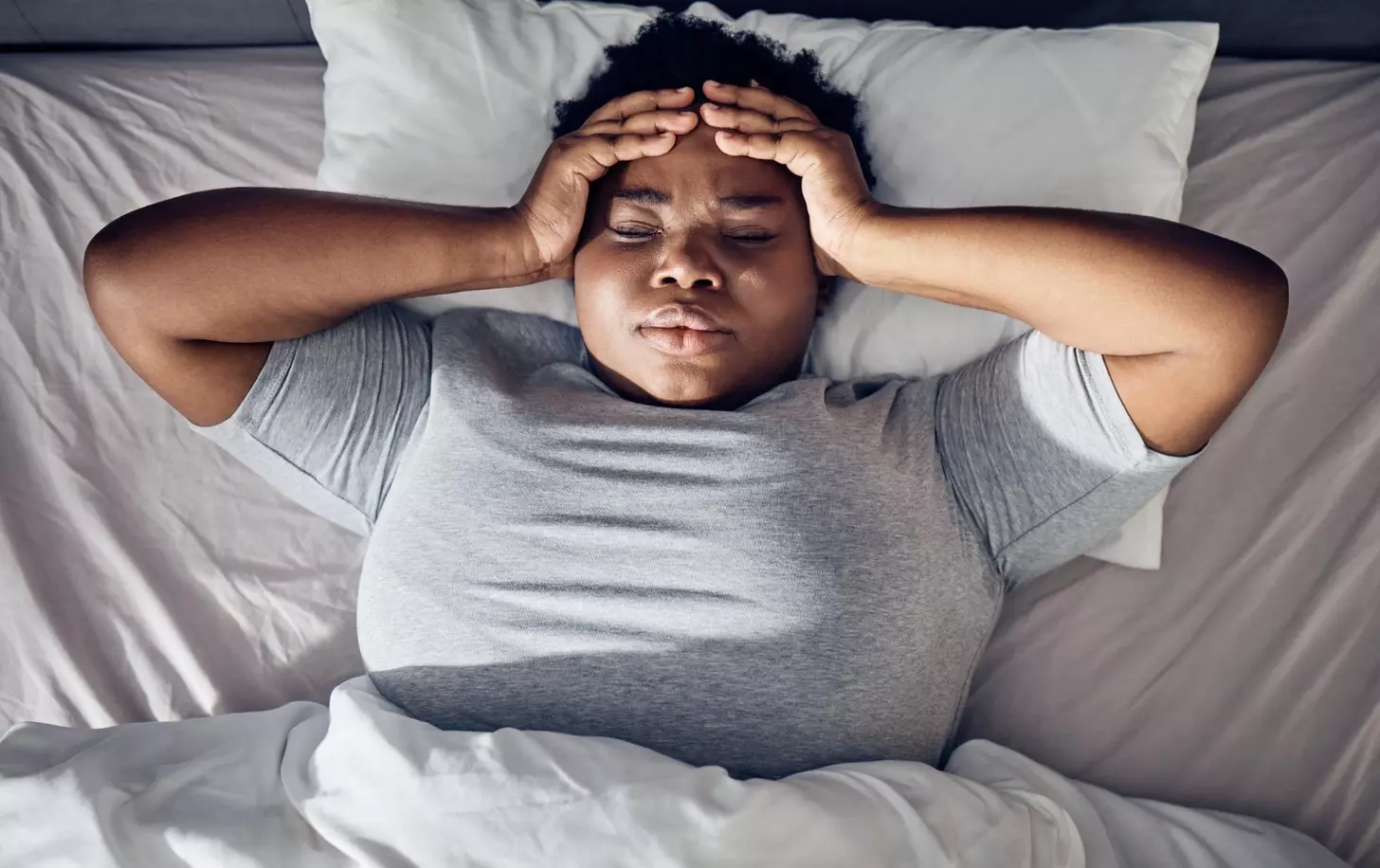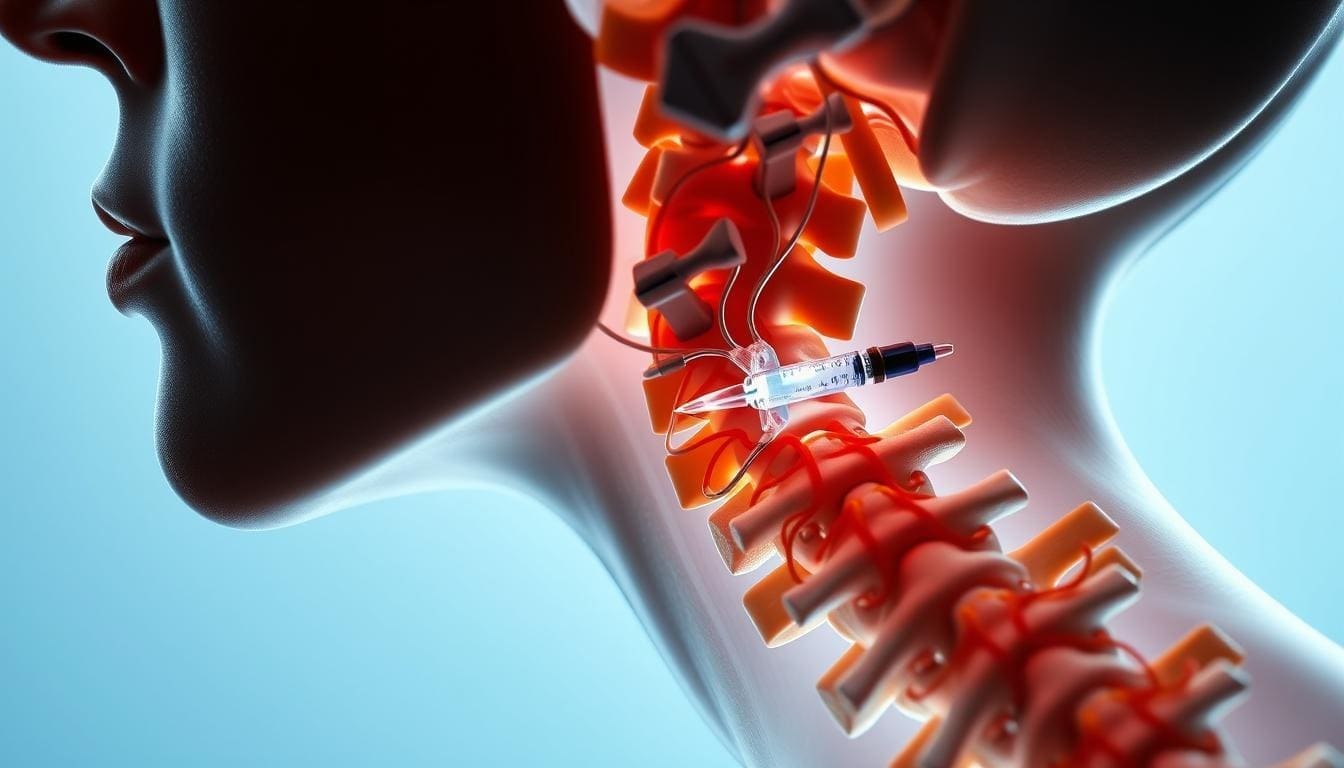Last Updated on November 26, 2025 by Bilal Hasdemir

At Liv Hospital, we know you might worry about cortisone injections and sleep. Steroid shots, or cortisone injections, are used to quickly reduce swelling and pain. They help with joint, tendon, and muscle problems. How fast do steroid shots work? Our ultimate guide explains the onset of relief and reveals the surprising reason they might cause insomnia.
How fast you feel better can vary. Some people see improvement in hours, while others might take days. We’ll look into steroid shots and their side effects, like insomnia.
Our doctors are here to help. They focus on your needs and answer your questions about cortisone injections and their effects.
Key Takeaways
- Steroid shots are used to treat various musculoskeletal conditions.
- Relief timing varies among individuals.
- Cortisone injections can have possible side effects.
- Insomnia is a side effect of steroid shots.
- Liv Hospital offers full care for patients getting cortisone injections.
What Are Steroid Shots: Understanding Cortisone and Corticosteroid Injections

Corticosteroid injections, also known as steroid shots, are key in fighting inflammation and pain. They deliver strong anti-inflammatory medicine right to the problem area. This helps with many conditions.
The Science Behind How Corticosteroids Work in the Body
Corticosteroids are man-made versions of cortisol, a hormone made by the adrenal gland. They reduce the immune system’s inflammation, which cuts down swelling, pain, and redness. This is vital for treating inflammation-based conditions.
Injecting corticosteroids into a specific area offers targeted relief. This method avoids the side effects of taking them by mouth. It lets us use higher doses right where they’re needed, making them more effective.
Different Types of Steroid Injections and Their Purposes
There are many types of corticosteroid injections, each for different uses:
- Cortisone injections: Commonly used for joint inflammation and pain.
- Methylprednisolone injections: Often used for severe inflammation and may be preferred for certain conditions due to their potency.
- Triamcinolone injections: Used for various inflammatory conditions, including skin and joint disorders.
These injections are customized for each patient. The choice of corticosteroid depends on the condition, its severity, and the patient’s medical history.
Is Cortisone Injection a Steroid? Clarifying Common Confusion
Many wonder if cortisone injections are steroids. The answer is yes; they are a type of corticosteroid injection. Cortisone is a steroid medication that fights inflammation. While “cortisone” and “steroid” are often mixed up, corticosteroids are a broader class of steroid hormones. Cortisone injections are part of this group.
Knowing that cortisone injections are steroids helps clear up their role in treating inflammation. This knowledge can ease patients’ worries about getting “steroid shots.” It helps them understand their treatment better.
Common Conditions Treated with Steroid Injections

Steroid injections are a versatile treatment for many medical conditions. They help relieve pain and inflammation. These injections work well for conditions that cause pain and swelling in joints, muscles, and soft tissues.
Joint and Musculoskeletal Applications
Steroid injections are often used for joint and musculoskeletal issues. They are commonly used for:
- Osteoarthritis: Steroid injections can reduce pain and inflammation in joints affected by osteoarthritis.
- Tendonitis: Cortisone shots can alleviate pain and inflammation associated with tendonitis.
- Bursitis: Steroid injections are effective in treating bursitis by reducing inflammation in the bursae.
- Rotator cuff injuries: Corticosteroid injections can help manage pain and inflammation related to rotator cuff injuries.
These injections are helpful when other treatments don’t work. The table below shows some common conditions treated with steroid injections:
| Condition | Description | Effectiveness of Steroid Injections |
| Osteoarthritis | Degenerative joint disease causes pain and stiffness | Highly effective for short-term relief |
| Tendonitis | Inflammation of tendons causes pain and swelling | Effective in reducing inflammation and pain |
| Bursitis | Inflammation of the ursae leading to pain and swelling | Highly effective in reducing inflammation |
Inflammatory and Autoimmune Disorders
Steroid injections are also used for inflammatory and autoimmune disorders. These include:
- Rheumatoid arthritis: Corticosteroid injections can help manage joint inflammation and pain associated with rheumatoid arthritis.
- Inflammatory bowel disease: Steroid injections can be used to treat inflammation related to conditions like Crohn’s disease.
- Skin conditions: Cortisone shots can be used to treat certain skin conditions, such as keloids or severe acne.
What Cortisone Injections Are Used For: Beyond Joint Pain
While joint pain is a common reason for steroid injections, they are used for more. Cortisone shots can treat various conditions, including:
- Trigger points: Steroid injections can help alleviate pain associated with trigger points in muscles.
- Plantar fasciitis: Cortisone shots can be effective in treating heel pain caused by plantar fasciitis.
- Tennis elbow: Steroid injections can help manage pain and inflammation associated with tennis elbow.
Knowing the wide range of conditions treated with steroid injections helps patients and healthcare providers make better choices.
How Fast Do Steroid Shots Work: Timeline for Relief
Patients and doctors often wonder how fast steroid shots work. Knowing when you’ll feel better helps set realistic hopes and makes treatment plans better.
Immediate Effects: What to Expect in the First 24 Hours
Right after getting a steroid shot, people feel different things. Some feel better right away, while others notice changes later. Many things can affect how you feel first, like the steroid type, where it’s injected, and how your body reacts.
Right away, some people feel better, which is common for those with inflammation. But the area where the shot was given might feel sore or uncomfortable at first. This usually goes away within a day.
Short-Term Benefits: Days 1-7 After Injection
After the shot, the anti-inflammatory effects kick in more. Many see big improvements in 1-7 days. The steroid cuts down inflammation, which means less pain and better movement.
The best effects of steroid shots usually happen a few days to a week after getting them. During this time, symptoms like swelling go down, and moving around gets easier.
Factors That Speed Up or Delay Relief
Many things can change how fast steroid shots work. These include how bad the condition is, how well the shot was given, and how the person reacts to the steroid.
- Type and dose of steroid: Different steroids work in different ways and for different lengths of time.
- Injection technique: The skill of the person giving the shot can affect how well it works and how fast you feel better.
- Underlying condition: The type and how bad the condition is can also affect how fast symptoms get better.
Knowing these factors helps doctors set better expectations and improve treatment results.
The Steroid Injection Procedure: What to Expect
Learning about the steroid injection procedure can help ease your worries. We’ll guide you through each step, from getting ready to aftercare. This will make you feel more at ease and informed.
Before the Injection: Preparation and Consultation
Before your steroid injection, you’ll talk with your doctor. You’ll discuss the procedure, its benefits, and risks. It’s your chance to ask any questions you have.
Your healthcare team will clean the area with alcohol or iodine. This step is important to prevent infection and ensure success.
During the Procedure: The Cortisone Needle and Injection Process
During the procedure, a cortisone needle is used for the steroid injection. The needle goes into the affected area, and the steroid is injected. The whole process is quick, and you might feel a little discomfort.
Your healthcare provider will make sure the area is clean and ready. This is key to avoiding infection and making the procedure work well.
Post-Injection Care and Activity Recommendations
After the injection, your doctor will tell you how to care for yourself. They’ll give you advice on activity levels, managing side effects, and when to come back for a check-up. It’s important to follow these instructions for the best results.
Here’s a quick overview of what happens during and after a steroid injection:
| Procedure Step | What to Expect |
| Pre-Injection | Consultation, cleaning of the injection site |
| During Injection | Insertion of a cortisone needle, administration of a steroid |
| Post-Injection | Care instructions, managing side effects |
Knowing what to expect from the steroid injection procedure can help you feel more ready. It can reduce your anxiety and make the experience smoother.
Do Steroid Shots Hurt? Understanding Pain and Discomfort
Steroid shots are good at reducing inflammation. But getting the shot can hurt for some people. How much pain you feel depends on where the shot is given and how sensitive you are to pain.
Causes of Injection Pain
There are a few reasons why steroid shots might hurt. The needle can cause a sharp pain when it goes in. The medicine can also make the area sore after the shot. Many people say they feel more pressure than pain during the shot.
Variations by Injection Site
The pain from a steroid shot can change based on where you get it. Shots in joints or areas with less fat might hurt more because of the bone or tendons nearby. Shots in fatter areas might be less painful. Knowing this can help you prepare for the shot.
Managing Discomfort During and After the Procedure
There are ways to make the shot less painful. Putting ice on the area before can numb it. You can also use a local anesthetic to help. Taking over-the-counter pain meds can help with any soreness.
Many people worry about the pain of steroid shots. Knowing why it hurts and how to make it less painful can help. This way, you can be better prepared and feel less pain during the shot.
How Long Do Steroid Shots Last? Duration of Effects
Steroid shots can offer relief for varying durations, influenced by multiple factors. The effectiveness of these injections can last anywhere from a few weeks to several months. This depends on the condition being treated and individual patient factors.
Duration for Different Conditions
The duration of relief from steroid shots varies significantly across different conditions. For instance, injections for acute injuries might provide relief for a shorter duration. This is compared to those for chronic inflammatory conditions.
| Condition | Typical Duration of Relief |
| Tendonitis | Several weeks to a few months |
| Arthritis | Several months |
| Acute Injuries | A few weeks |
Specific Considerations for Knee Cortisone Shots
Knee cortisone shots are a common treatment for knee pain associated with arthritis or other inflammatory conditions. The duration of relief from these shots can vary. But typically, patients can expect several months of reduced pain and inflammation.
Factors influencing the duration of knee cortisone shots include:
- The severity of the underlying condition
- The presence of any underlying diseases
- Patient’s overall health
- Activity level after the injection
Factors That Influence Duration of Relief
Several factors can influence how long the effects of steroid shots last. These include the type of steroid used, the location of the injection, the severity of the condition being treated, and the patient’s overall health.
Understanding these factors can help patients and healthcare providers make informed decisions about the use of steroid injections as part of a treatment plan.
Do Steroid Shots Cause Insomnia? Examining the Evidence
Corticosteroid injections are used to reduce pain and swelling. But they might also affect sleep. It’s important to look at the research and how these shots could change sleep patterns.
Research Findings on Steroid Injections and Insomnia
Studies have looked into the link between corticosteroid injections and sleep problems. Research shows that systemic corticosteroids can cause insomnia as a side effect. The frequency of this issue depends on the treatment and the patients.
A study in a well-known medical journal found that patients with corticosteroid injections had more sleep issues. But the study also said that insomnia wasn’t very common.
Mechanism: How Corticosteroids Affect Sleep Patterns
Corticosteroids can change sleep patterns in several ways. They can alter the body’s natural cortisol rhythm, making it hard to fall or stay asleep. They can also change mood and energy, which might affect sleep quality.
Cortisone Shot and Insomnia: Prevalence and Risk Factors
Insomnia after cortisone shots varies among people. Some factors can make it more likely to happen, including:
- Dosage and frequency of corticosteroid injections
- Individual sensitivity to corticosteroids
- Pre-existing sleep disorders
- Concurrent use of other medications that affect sleep
| Risk Factor | Description | Impact on Insomnia Risk |
| Dosage | Higher doses of corticosteroids | Increased risk |
| Frequency | Repeated injections over short periods | Increased risk |
| Individual Sensitivity | Variability in patient response to corticosteroids | Variable risk |
Knowing these factors helps doctors predict the risk of insomnia for patients getting cortisone shots. They can then plan ways to lessen this side effect.
Do Steroid Shots Keep You Awake? Managing Sleep Disturbances
Managing sleep issues is key for those getting steroid shots. These shots help with pain and swelling, but can mess with sleep. They might make it hard to fall asleep or keep you awake at night.
Typical Sleep Patterns After Injection
Getting a steroid shot can change how you sleep. Some people have trouble falling asleep, while others wake up a lot. This is because the steroids can mess with your body’s hormones.
Studies show steroids can change your cortisol levels. This can cause insomnia or restless sleep. How bad it is and for how long depends on the steroid, the dose, and your health.
Cortisone Injection Sleeplessness: Medical Management Approaches
If you’re having trouble sleeping after a shot, doctors have ways to help. They might change when you get the shot or try other treatments to help you sleep better.
Doctors might suggest sleep aids or relaxation methods. It’s important to talk to your doctor about your sleep problems to find the best solution.
Lifestyle Strategies to Improve Sleep After Steroid Treatment
There are also things you can do to help sleep better after steroid treatment. Try going to bed and waking up at the same time every day. Make your bedtime routine calm and avoid exciting activities before bed.
- Maintain a dark, quiet sleep environment.
- Avoid caffeine and heavy meals close to bedtime
- Engage in regular physical activity, but not before bed
- Practice stress-reducing techniques, such as meditation or deep breathing
By trying these tips and talking to your doctor, you can manage sleep problems from steroid shots. This can improve your life a lot.
Other Common Side Effects of Steroid Injections
Steroid injections can cause side effects, from mild to severe. They are effective against inflammation but come with risks. It’s important for patients to know these risks to make good treatment choices.
Short-Term Side Effects and Their Management
Short-term side effects can happen right after or soon after the injection. These include pain during and after the shot, swelling, bruising, and redness. Managing these side effects often means using ice, over-the-counter pain meds, and resting the area.
Some people might feel a temporary flare-up of pain, known as a “steroid flare.” This usually goes away in a few days. The skin around the injection site might also change color, but this is usually temporary.
Long-Term Risks with Repeated Injections
Getting steroid injections often can weaken tendons and ligaments, leading to rupture. Frequent injections can also damage cartilage in joints. There’s a chance of getting osteoporosis or avascular necrosis, which is more likely in older adults or those with bone issues.
Healthcare providers need to watch patients who get many steroid injections. They might limit how often injections are given and look for other treatments.
Rare but Serious Complications to Be Aware Of
Though rare, serious problems can happen with steroid injections. These include infection at the site, which can be serious if not treated right away. There’s also a chance of allergic reactions to the steroid or other parts of the injection. In some cases, the injection can cause nerve damage, leading to numbness, tingling, or pain.
Another rare but serious risk is the steroid being absorbed into the body. This can cause systemic side effects like mood changes, insomnia, or high blood sugar, which is a big concern for diabetic patients.
It’s key for patients to know about the side effects of steroid injections. By understanding both common and rare complications, patients can make better choices about their treatment. They can work closely with their healthcare providers to reduce risks.
Effectiveness of Steroid Shots: What the Research Shows
Studies show that steroid shots can be very effective for some conditions. But how well they work can vary. These injections are used to treat many issues, like osteoarthritis and tendonitis. The success of these shots depends on the condition and how the patient reacts.
Success Rates for Different Conditions
Research finds that steroid shots work best for inflammatory and autoimmune disorders. For example, they can greatly help those with osteoarthritis by reducing pain and improving joint function. A study in the Journal of Orthopaedic & Sports Physical Therapy found that cortisone injections significantly reduced pain in knee osteoarthritis patients.
Success rates vary by condition:
- Tendonitis: Steroid injections can be highly effective, providing relief in 60-80% of cases.
- Osteoarthritis: Success rates range from 50-70%, depending on the joint being treated.
- Inflammatory arthritis: Steroid shots can provide significant relief, with success rates between 60-90%.
Limitations: When Steroid Shots Don’t Work
Even though steroid shots can be very effective, they’re not a solution for everyone. Some people may not feel much relief, and the effects might not last long. The severity of the condition, any underlying structural issues, and how well the body responds to corticosteroids can all affect how well the shots work.
“Corticosteroid injections are not a cure-all, and their effectiveness can vary significantly from one patient to another.”
Comparing Steroid Injections to Alternative Treatments
When looking at treatment options, it’s important to compare steroid shots to other choices. Treatments like physical therapy, hyaluronic acid injections, and PRP therapy might offer similar or better benefits. The right treatment depends on the condition, what the patient prefers, and their overall health.
We recommend talking to your healthcare provider about:
- The benefits and risks of steroid shots for your condition.
- Other treatment options and how they compare.
- A treatment plan that might include different therapies.
Who Should Avoid Steroid Injections: Contraindications
Some medical conditions and medications make steroid injections risky. These injections treat many inflammatory conditions. But, they’re not right for everyone. We’ll talk about the main reasons healthcare providers think twice before giving them.
Medical Conditions That Preclude Steroid Use
Some health issues make steroid injections dangerous. For example, if you have an active infection, steroids could make it worse. Also, people with bleeding disorders or on anticoagulants might bleed more at the injection site.
Conditions that may preclude steroid injections include:
- Active infections
- Bleeding disorders
- Recent bone fractures
- Severe osteoporosis
Medication Interactions and Concerns
Some medicines can mess with steroid injections. They might increase the risk of side effects or make the treatment less effective. For instance, people on anticoagulants could bleed more at the injection site.
Telling your doctor about all your medications is key. This includes over-the-counter drugs and supplements, to check for any bad interactions.
Special Considerations for Specific Patient Groups
Some groups need extra care with steroid injections. Pregnant or breastfeeding women, people with diabetes, and those allergic to steroids or other parts of the injection are examples.
Conclusion: Balancing the Benefits and Risks of Steroid Shots
We’ve looked into how steroid shots help treat different health issues. They are good for conditions like bursitis and joint injuries. But it’s key to know their downsides too.
Steroid shots can really help, but they might also have side effects. Knowing both sides helps us decide if they’re right for us. It’s all about making smart choices.
Patients and doctors need to think carefully about using steroid shots. We should look at each person’s health and the problem they face. This way, we can find the best treatment with fewer risks.
FAQ
What are steroid shots used for?
Steroid shots, also known as cortisone injections, treat musculoskeletal issues. This includes joint pain, inflammatory disorders, and autoimmune diseases.
How do steroid shots work?
They reduce inflammation and swelling. This relieves pain and discomfort in the affected area.
Can steroid shots cause insomnia?
Yes, they can cause insomnia in some people. Corticosteroids can disrupt sleep patterns, leading to sleeplessness and other disturbances.
How long do steroid shots last?
Relief from steroid shots varies. It depends on the condition and individual factors. Effects can last from weeks to months.
Are cortisone injections painful?
Cortisone injections can be uncomfortable during and after. But the pain is usually short-lived and can be managed.
Can I receive steroid shots if I have certain medical conditions?
Certain conditions, like diabetes and high blood pressure, may not allow steroid shots. Always consult a healthcare professional to see if they’re right for you.
How long does it take for steroid shots to work?
Relief from steroid shots varies. Some feel immediate effects, while others may take a few days or a week.
Can steroid shots be used for knee pain?
Yes, they are used for knee pain. This includes pain from osteoarthritis and rheumatoid arthritis.
What are the common side effects of steroid injections?
Common side effects include pain, swelling, and insomnia. Rare but serious complications include infection and allergic reactions.
How can I manage sleep disturbances after steroid shots?
Managing sleep disturbances involves medical approaches and lifestyle changes. This includes a consistent sleep schedule, avoiding stimulants, and relaxation techniques.
Are there alternative treatments to steroid shots?
Yes, alternatives include physical therapy, medication, and lifestyle changes. The effectiveness depends on the condition being treated.
Reference:
Cambridge University Hospitals NHS Foundation Trust. (2024). Steroid joint injections. CUH NHS. https://www.cuh.nhs.uk/patient-information/steroid-joint-injections/






